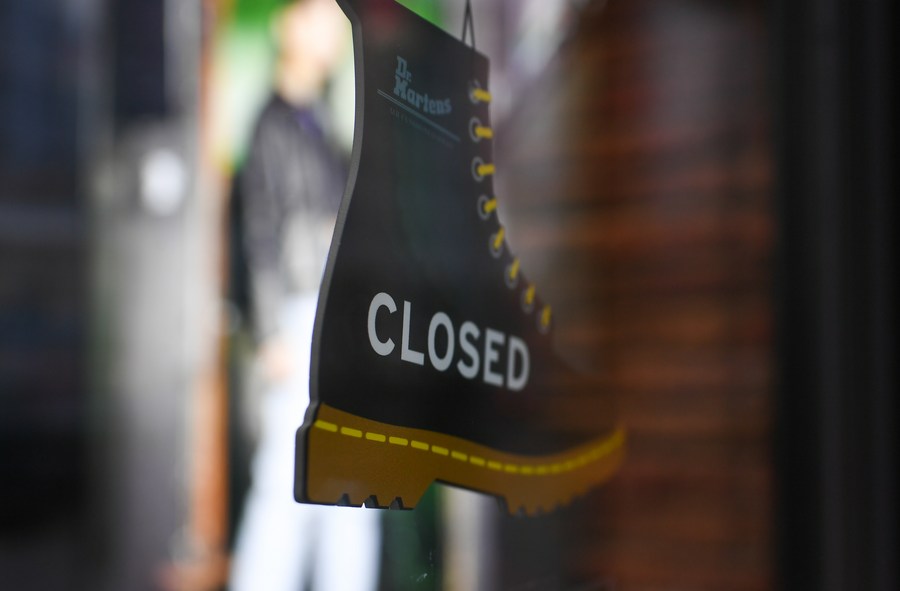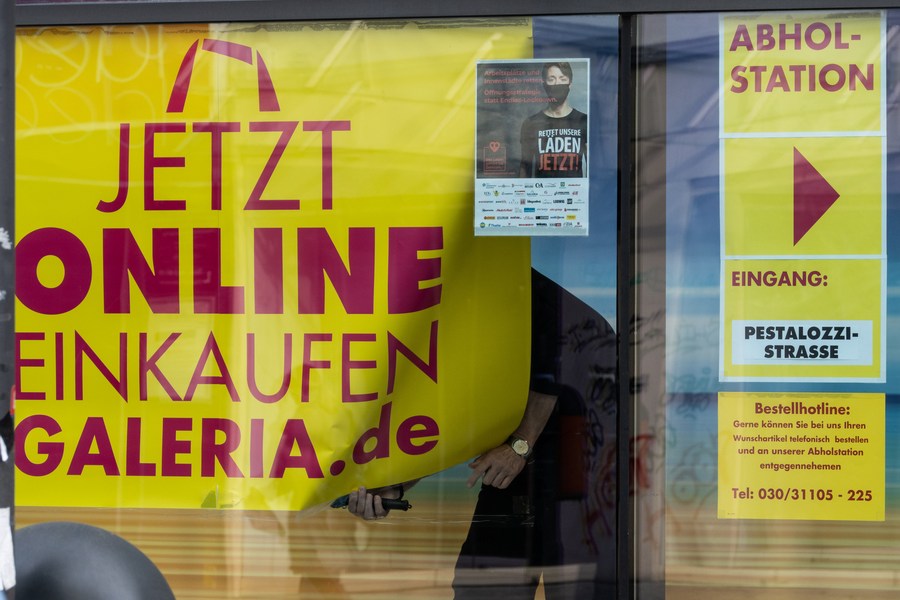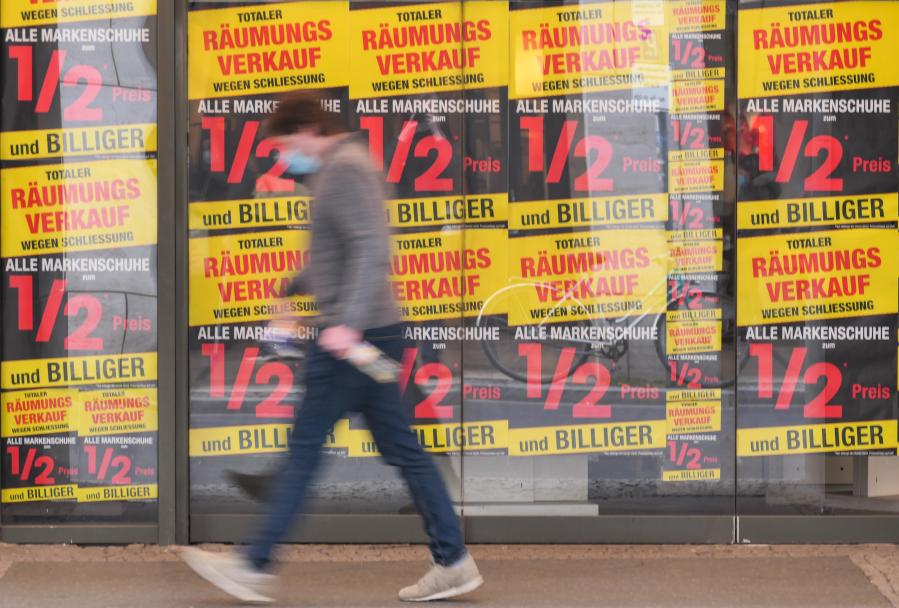Economic Watch: COVID-19 significantly changes retail industry in Europe

A closed sign is seen on the window of a temporarily closed shoe store during COVID-19 pandemic in Frankfurt, Germany, Jan. 6, 2021. (Xinhua/Lu Yang)
- Before COVID-19, most customers in Europe made purchasing decisions in the store, choosing products based on what they saw and touched, and usually paid by cash.
- "The year of 2020 has completely changed our everyday life. Our purchases are significantly more digital than they were in the previous year," said CEO of Concardis and Nets Merchant Services, the European payment service provider.
FRANKFURT, April 4 (Xinhua) -- The COVID-19 pandemic has forced cash-loving Europeans to embrace significant changes in their shopping behaviors. It is believed that booming online business and less cash payment will keep on going even in the post-pandemic era.
In February, adjusted retail turnover in Germany declined by 9 percent in real terms from a year earlier, following the second COVID-19 lockdown, which caused a large number of shops to close, Federal Statistical Office said on Thursday.
However, the data from this office also showed that the internet and mail order business clearly benefited from the store closure, with sales in February increasing by more than 34 percent year on year in real terms.

A shop assistant puts up an advertisement of online shopping in Berlin, Germany, on March 9, 2021. (Photo by Stefan Zeitz/Xinhua)
In fact, thanks to the flourishing online business, retail sales across the European Union (EU) countries has avoided a worse slump amid the pandemic in 2020.
The annual average retail trade for the year 2020 only fell by 0.8 percent in the EU, where the GDP slumped at an annual rate of 6.2 percent, the data from the Eurostat showed.
A survey in 19 European countries at the end of 2020 conducted by Ecommerce Europe, an association representing over 100,000 online retailers in Europe, indicated that all respondents reported positive growth in product sales online over the past year, ranging from 5 to 10 percent in Poland to 60 to 75 percent in Finland.
On e-commerce during the COVID-19 crisis, all respondents reported a positive public perception for the sector, and a majority reported positive political perception as well, according to the Ecommerce Europe.
The answers to the survey demonstrated that e-commerce has become a lifeline for many traditional brick-and-mortar businesses that had to close, allowing them to continue their activities during the lockdown.
Despite the strong demand in online business over the past year, the survey also showed a nuanced image of the impact of COVID-19 on the industry. While many sectors have generally seen increasing sales, there is also a significant segment that has experienced a decrease in sales.
For example, e-commerce services such as travel or online ticket sales fell by 40 to 70 percent among the respondents. Additionally, while the fashion sector, notably home wear, has improved, the demand for other types of shoes and attire remains low.
With the risks of infection still high in Europe, the retail industry obviously gears up for a difficult 2021.

A pedestrian wearing face mask walks past sale advertisements of a shop in Berlin, capital of Germany, March 25, 2021. (Photo by Stefan Zeitz/Xinhua)
A new survey from the German Retail Federation (HDE) showed that 54 percent of fashion stores faced the danger of bankruptcy after 100 days of lockdown.
The e-commerce sector, however, expects a definitive growth in product sales in 2021 and a possible growth in the sale of services dependent on the severity of the COVID-19 measures, the survey from Ecommerce Europe showed.
Before COVID-19, most customers in Europe made purchasing decisions in the store, choosing products based on what they saw and touched, and usually paid by cash.
Though consumers in Germany paid more for their purchases with debit and credit cards than with cash for the first time in 2018, about 76.1 percent of all retail purchases in Germany were still made using cash, which shows that Germans generally still preferred to pay small sums in cash, according to the EHI Retail Institute.
A Bundesbank survey showed that COVID-19 has changed German consumer's behaviour. The ratio of respondents who said they had changed their payment behaviour increased from 25 percent to 43 percent within only one month after the breakout of the pandemic, it said.
"The year of 2020 has completely changed our everyday life. Our purchases are significantly more digital than they were in the previous year," said Robert Hoffmann, CEO of Concardis and Nets Merchant Services, the European payment service provider.
Photos
Related Stories
- European economic activity starting to show signs of recovery: report
- Europe marks day of remembrance of victims of terrorism
- In pics: Park of Fiftieth Anniversary in Brussels, Belgium
- ECB's Lagarde says "we will have a digital euro"
- World Insights: Vaccination gathers pace in Europe amid new COVID-19 variants, high death toll
Copyright © 2021 People's Daily Online. All Rights Reserved.










